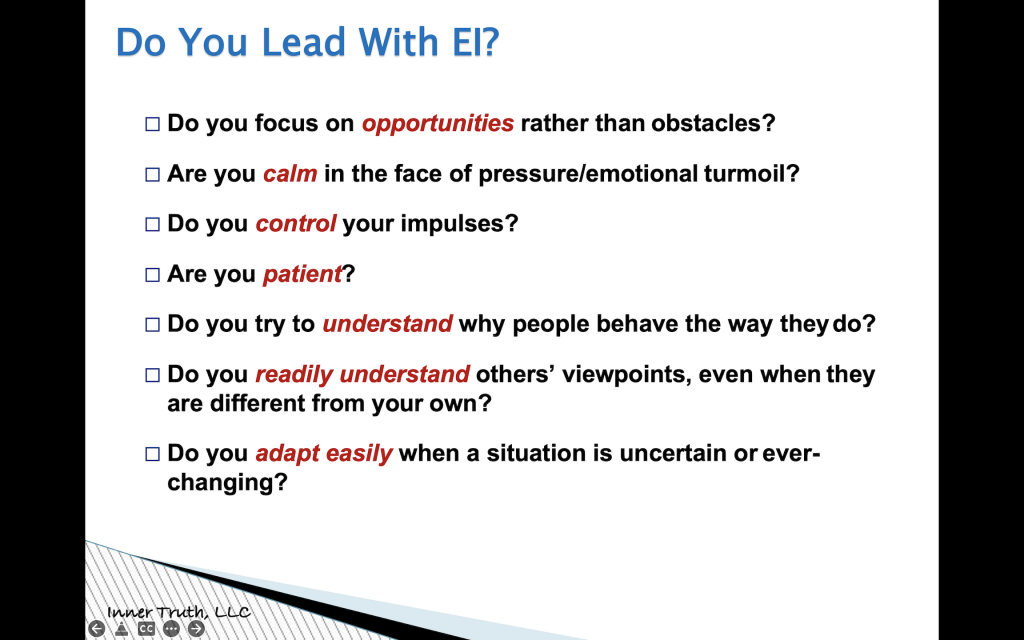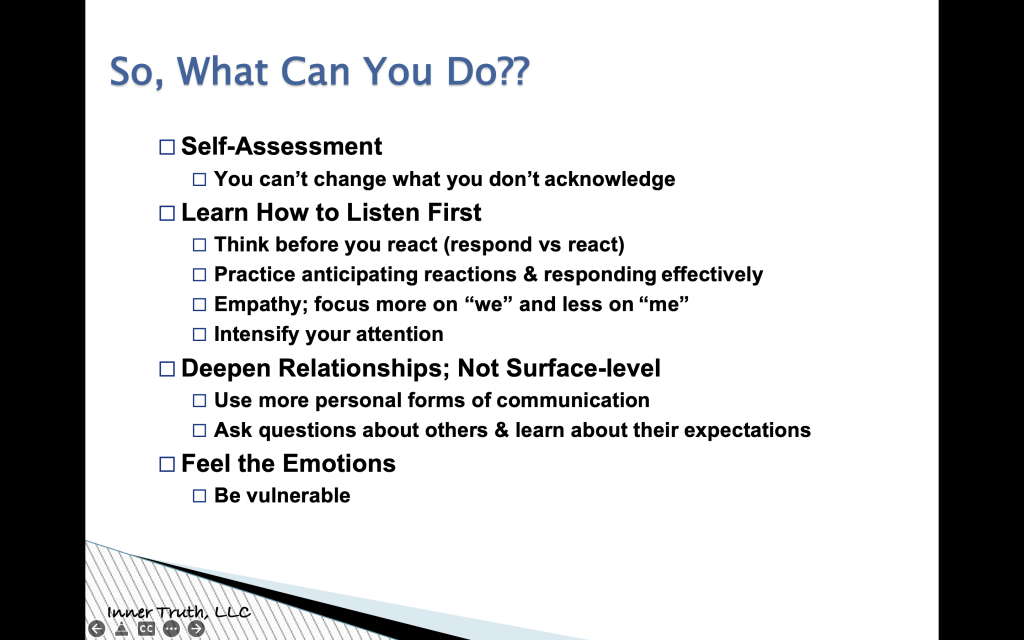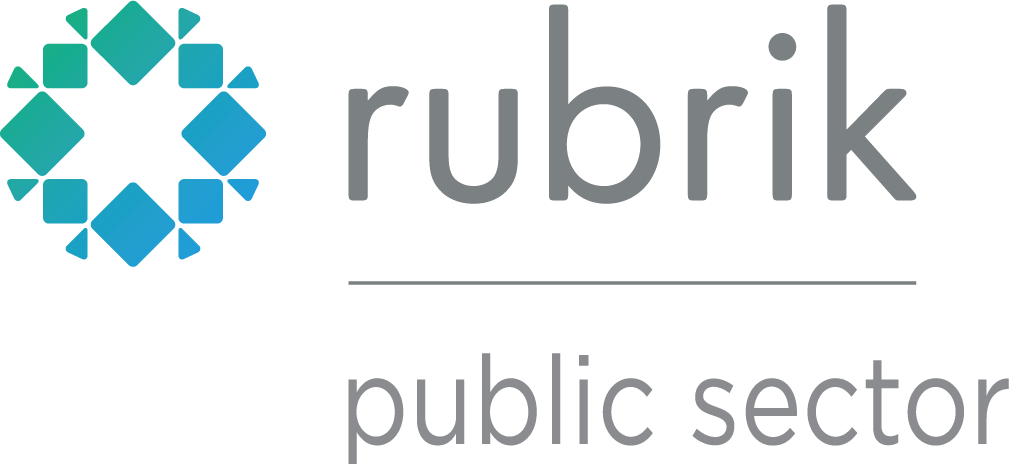Think about a leader who had a special, positive impact on you. What did they do? What were they like? Try to identify the traits that made them a memorable leader.
At GovLoop’s online training Tuesday, virtual attendees shared that leaders who impacted them were supportive, empathetic, good listeners, understanding, patient, compassionate, calm, adaptable and trusting, to give a few examples.
If you think about it, most if not all of these attributes relate to high emotional intelligence, said Tina Erzen, a senior executive coach, and leadership and organizational development consultant.
“When we see these characteristics and think, ‘That had a big impact on me,’ we can understand all the words we saw [indicate] leaders that have emotional intelligence,” Erzen said.
But What Is Emotional Intelligence?
“The capacity for recognizing our own feelings and those of others, for motivating ourselves, and for managing our emotions well in ourselves and in our relationships.”
— Daniel Goleman, “Emotional Intelligence”
It isn’t your compatibility with others or even your personality. It’s more a set of skills — emotional and social — that gives us:
- awareness of our emotions and those of others
- the ability to manage our emotions and those of others, and
- the ability to use emotions to make decisions and get things done.
“In other words, it’s the intelligent use of emotions,” Erzen said.
Why You Need It at Work
Emotional intelligence, or EI, has an outsize importance in the workplace. Psychologist and EI expert Daniel Goleman found that on average for all jobs, EI is twice as important as cognitive ability. And, it matters more the higher up you go in an organization.
“For top leadership positions, many organizations have determined that 80% to 90%, sometimes 100%, of competencies that set apart their star leaders are based on emotional intelligence,” Goleman said.

“If a leader doesn’t take time to address fears and feelings, they will spend their time addressing ineffective and unproductive behavior.”
— Brene Brown
We experience a constant stream of emotions — to the tune of 1,200 or more a day, Erzen said. And if we’re not aware of them, they can control us instead of us controlling them.
Physically, EI is the product of communication between our brain’s frontal lobe and limbic system. We experience emotions first in our limbic system before the signals travel to our frontal lobe, or “rational brain,” where we can process our emotions.
In normal circumstances, our frontal lobes can help us think through our feelings. However in higher stress situations, our emotions can trigger our amygdala to essentially override our rational brain and take over. This is when we end up responding in ways we later regret.
The key is to know that we can choose how to respond.
“Our emotions are directions, not directives,” Erzen said. “They’re messengers. They give us information. It’s important to evaluate feelings objectively in our rational brain and curb the tendency to make negative jumps and enter the land of what I call ‘MSU’ — making stuff up.”
Self-awareness is a first step. Here are some strategies Erzen offered to increase your self-awareness:
- Keep a journal.
- Quit treating your emotions as good or bad.
- Observe the ripple effect from your emotions.
- Visit your values.
- Seek feedback.
Other than self-awareness, you can build your internal and social management skills of your emotions in the following ways:

“We always have a choice. We can either be derailed by an emotion … or we can find success through awareness, managing our emotions and being able to be intentional in how we’re showing up for ourselves and others,” Erzen said.
This online training was brought to you by:





* NOMINATIONS ARE OPEN *
GovLoop is proud to host the NextGen Public Service Awards for superior public service and achievement each year at the NextGen Government Training Virtual Summit. The awards recognize deserving individuals selected from the public service community for their intelligence, exuberance and dedication to improving and invigorating government.
Nominations will be accepted from now through July 1, 2022.
It’s easy to nominate … just click HERE.





Leave a Reply
You must be logged in to post a comment.